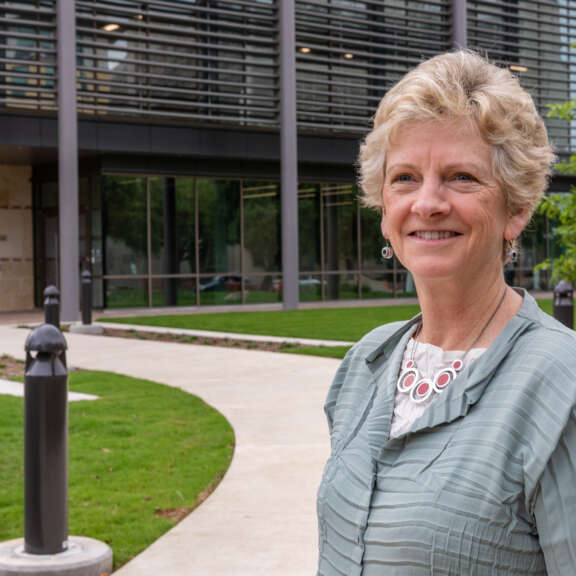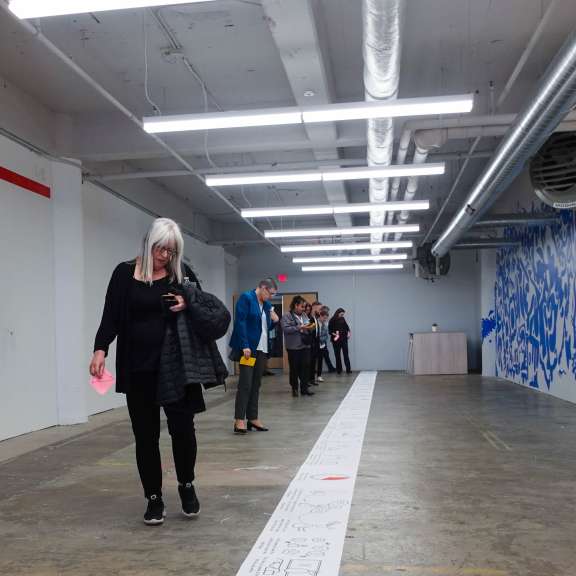"You Have To Be Willing To Get Uncomfortable"
Julia Dale shares what she’s learned about leading through times of crisis

Julia Dale has spent 20+ years serving Michigan residents in leadership and management roles across multiple state agencies. In 2021, amidst the pandemic, she was appointed director of the Unemployment Insurance Agency.
At the UIA, Julia leads a staff of 700 who are working to improve the unemployment insurance experience—a system that many Michiganders have struggled with over the last few years as they sought support in an unprecedented time. We wanted to hear from Julia on what it’s like to lead this type of change.
What brought you down the path of public service? How did you end up sitting in this chair at this moment in time?
When I started working for the state of Michigan I was with the Department of Civil Rights. I was really committed to some of the questions of social justice that they were addressing.
I loved my time serving there and had great mentors who shape my leadership style today. I remember one moment in particular: I was moving through my caseloads quickly and getting more cases transferred to me as a result. At that moment, I remember being frustrated. I was doing good work and getting more work as a result. What I see now is that this was a recognition by my mentor of what I was capable of doing—a recognition that I had the potential for more. As leaders, it’s our job to lift up the strengths, capabilities, and talents of our teams. Even if they don’t see them at first.
Oftentimes, we can only see what’s immediately around us. I’ve found that when I'm willing to stretch outside of that—or when someone else encourages me to—those have been pivotal moments of growth and opportunity.
How do your experiences help you mentor or coach others?
I have experienced several shifts within my career. These shifts propelled my growth personally and professionally, and provide experience that allows me to help others navigate through that cycle. When trying something new or moving into a new role, I tell people to expect that, in the first month, you’re going to feel off-balance. That’s normal.
You have to be willing to get uncomfortable. You have to be willing to not be the smartest person in the room. You have to be willing to learn something new and ask for help. And when someone asks you a question, you have to be willing to answer honestly, ‘I don't know,’ and then work to figure it out.
We need leaders who are willing to step forward when others walk away. The best leaders are the ones capable of managing the discomfort.
In your own words, how would you describe what you do at the UIA?
I see myself as a leader, a coach, a reformer, and a problem solver. And all these are in the context of a team. I also see myself as a partner—to my staff, to the Labor and Economic Opportunity (LEO) leadership and the Governor’s administration.
At the end of the day, I am accountable for the work we do. It is my responsibility to make sure that the work gets done, and that we are serving the hardworking people of Michigan in a fair and efficient manner.
When you came into this role, the organization was overworked and in crisis due to the pandemic. What did you know you needed in order to lead effectively?
I knew that it was going to take courage, wisdom, and a commitment to driving change. I also knew that I would need to have thick skin because of the scrutiny and criticism the agency rightfully faced.
There were claims that needed to be paid and cases that needed to be looked at. Staff was feeling weary and even a little beaten up. There had been a lot of turnover with leadership and it felt like everybody needed something.
There was no absence of work, and I had a team that was clearly burnt out. These challenges were aggravated by the changing leadership at the head of UIA. Coming in, it felt like everybody needed something and it was my responsibility to motivate the team, identify the fix, and implement the plan. I knew that I was going to have to work hard to level-set expectations and build trust with the team. It was important for the team to have a sense of who I was as a leader. I believe that if you can get someone to trust and understand your intentions, then you’ll be able to lead them successfully. When people trust your intentions they are more likely to step into uncertain waters with you. If they doubt your intentions coming in, that’s a bigger challenge.
How do you help others get a sense of who you are as a leader and build that trust?
I always have 1:1s with my staff and use them as an opportunity to develop better relationships with my team, stay on top of work and current trends, and issue-spot. As important as it is for me to understand the workings of the organization, I believe it’s equally important for me to understand the people that I am working with. And for them to get to know me too.
Who are they? What’s their life like? What do they value? What makes them tick? They’re not just your colleague—they have a whole life outside of work. You work with the whole person. As leaders we have to appreciate and make space for that. In doing so, you build community.
In the middle of this community we are able to be more gracious with one another. We get a sense of where people's strengths and weaknesses are, and it allows us to show up in ways that effectively support each other and strengthen the organization.
How do you hope to see the unemployment insurance system in Michigan evolve?
First, I want to see us get out of this crisis cycle. Even as unemployment has dropped and the number of claims being filed with us is down, we’re still very much dealing with the significant impact from the pandemic.
You make decisions differently when you’re in crisis mode. I want to ease us out of that and into a more focused decision-making process. Yes, we want to be able to make decisions expediently, but we also need to make sure they're informed and thoughtful. We need to be able to consider long-term implications. That’s the evolution we’re undergoing now.
It’s also imperative that we not only deliver for people in Michigan, but are able to inform the public and agency staff of all we’ve taken on and accomplished. You’d have to live in a hole to not have read or heard about the criticism against the agency in the last couple of years. But the public also deserves to know about the reforms we’ve successfully implemented that help people across our state and the work being done by the agency to build a better system for everyone in Michigan.
If you could give one piece of advice to give to other leaders out there, what would you leave them with?
Make sure that you leave plenty of space for grace for both yourself and your team. You’re not going to be able to do it all in one day. You have to be able to set a plan, set reasonable expectations about what you can deliver as a leader, and build a supportive work environment for your team. If you do that and stay focused on your commitment to change, you can take on tough projects with confidence. And while the tough projects can be daunting, they’re the ones worth taking on.
- Photo: Nick Assendelft


